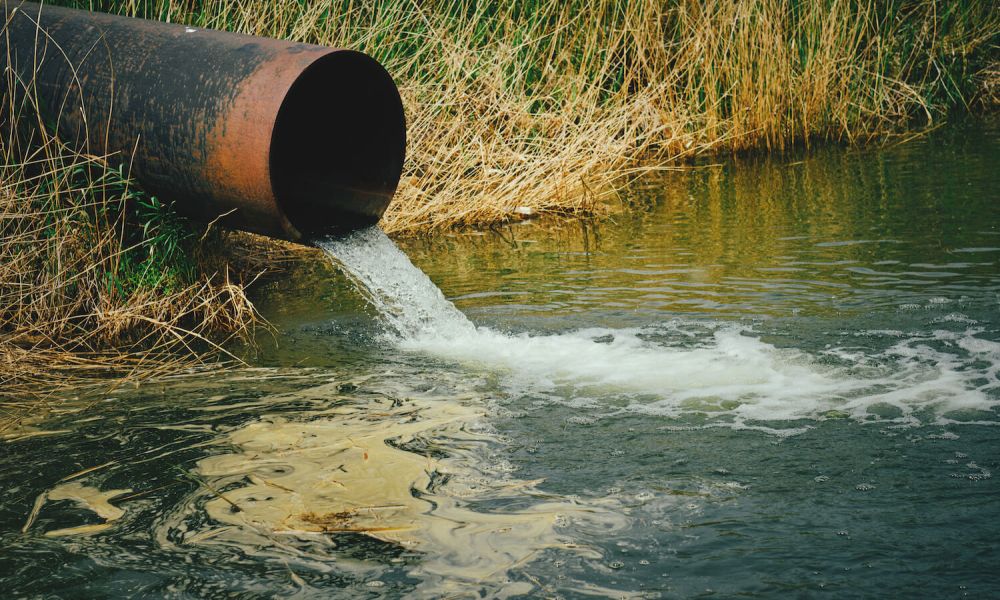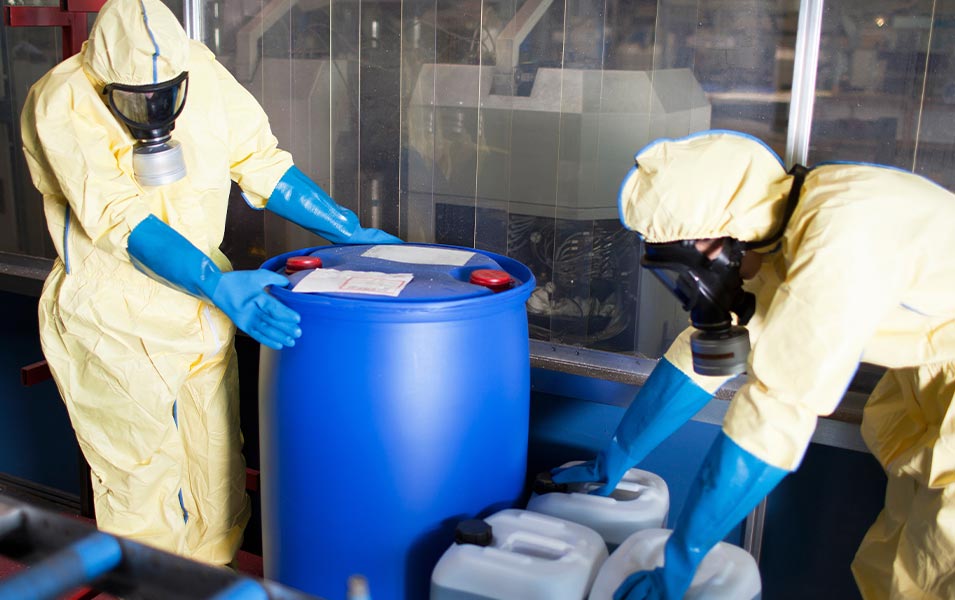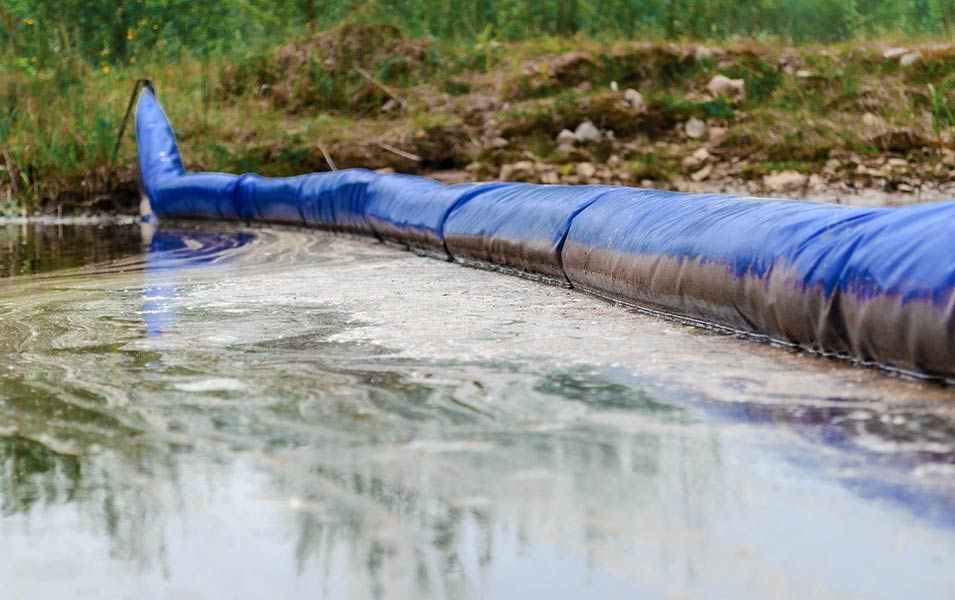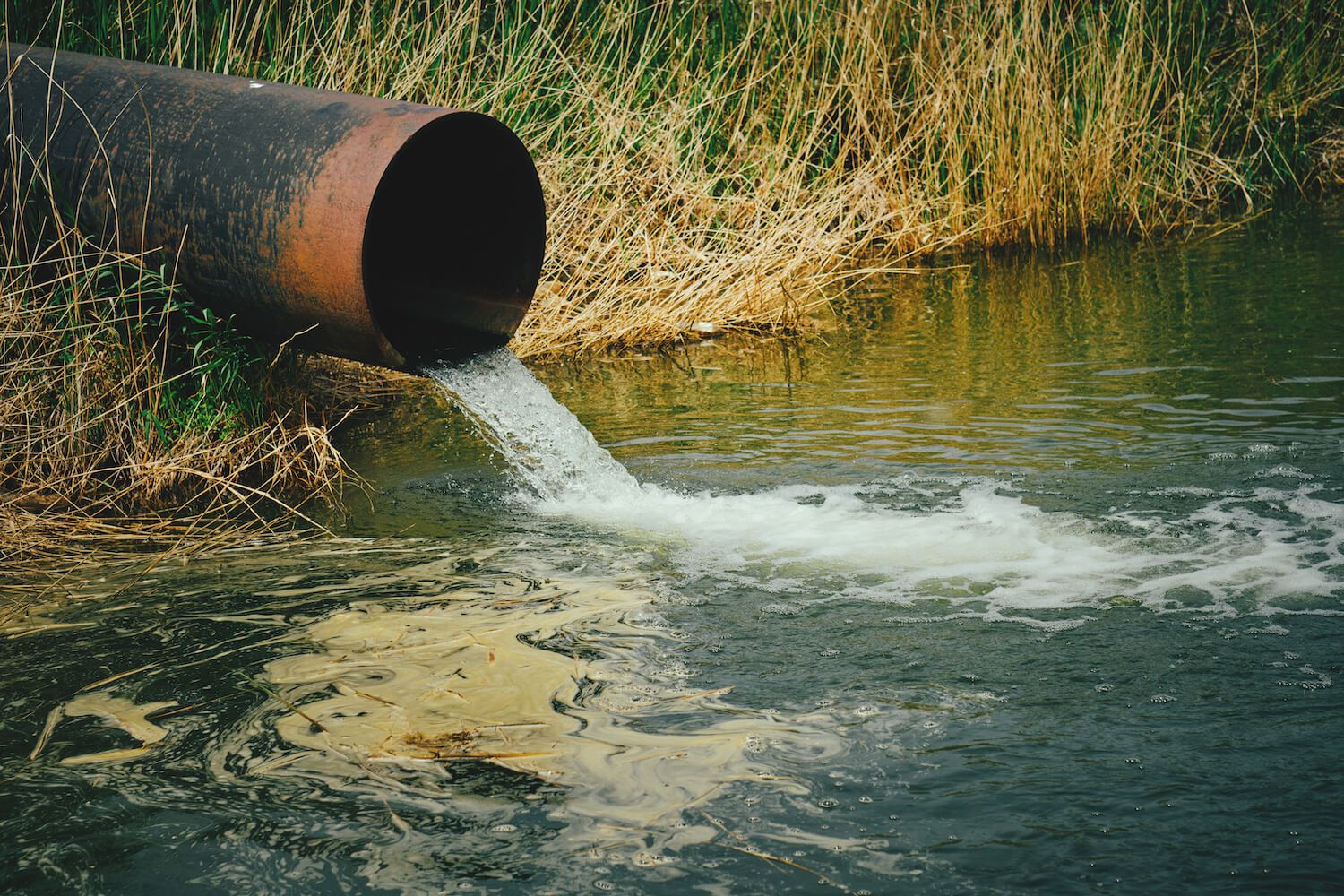
West Virginia Toxic Torts Lawyers
Whether you are a building owner or a product manufacturer, it is likely that someone will file a toxic tort claim against you at some point in the life of your business. A plaintiff will try to hold your company liable for their injury, illness, or damage to their property, and their personal injury lawyers will come for you with a toxic tort claim. They will likely claim your company was negligent or caused intentional harm to pass the blame onto you.
The toxic tort lawyers at Orndorff Mowen PLLC are here to assist your business, whether to defend you against toxic tort claims or to educate and inform you regarding environmental laws in West Virginia. We are here to help your business avoid liability when you are targeted by toxic tort lawsuits.
What is Toxic Tort Law?

Tort law governs most civil suits across the nation. Any claim heard in civil court that is not a contract dispute is generally considered to fall under tort law. The idea behind it is to allow someone who is wronged to seek redress and get relief in the form of monetary damages that compensate them for medical expenses, lost wages, pain and suffering, and other harm.
Tort cases are sometimes also called personal injury cases. When cases involve multiple plaintiffs, they can become mass tort cases. Sometimes these mass tort cases are consolidated into class action lawsuits. Other times they are assigned to multi-district litigation in state or federal courts.
Toxic tort is a subcategory of tort law strictly related to injuries caused by exposure to toxic substances. These cases are often heard under product liability doctrines. To prove a toxic tort case, there must be proof that your company is legally responsible for the plaintiff’s exposure to toxic substances. They must then prove causation, that this exposure to toxic chemicals or toxic materials caused them ongoing suffering or harm.
Toxic tort litigation is important to our society and is in place to protect people who are legitimately injured by careless companies. Unfortunately, far too many personal injury lawyers try to make money by filing toxic tort litigation. That is where the toxic tort lawyers at Orndorff Mowen come into the picture.
Our attorneys are ready to listen if you have been the target of toxic tort claims that you feel are unfair. Call us today at 866-481-2765 or fill out our online contact form to schedule a case evaluation with a member of our team.
Environmental Torts vs. Toxic Torts
You may have heard the term environmental toxic tort in reference to these cases, but environmental torts and toxic torts are two different things. Both fall under environmental law and involve the Environmental Protection Agency (EPA), but they involve separate and distinct forms of damages. State environmental agencies can also be involved in such cases. In West Virginia, this would be the state Department of Environmental Protection (DEP).
With an environmental tort, harm occurs to property. For example, oil and chemical spills can cause measurable harm to property or the environment, which leads to torts seeking to recover property damage.
Toxic torts are personal injury cases. They deal with injuries and wrongful death from conditions such as mesothelioma, lung disease, leukemia, and other health effects. In some cases, such as a spill contaminating groundwater, the lawsuit can involve both environmental and toxic tort.
Always remember that in civil suits such as toxic tort exposure cases, there must be proof that the defendant caused the injuries. Your best bet for fighting back against injury lawyers intent on taking your company down is to have a law firm in your corner with experience and practice areas in toxic tort cases.
How Plaintiffs Will Try to Prove Their Alleged Claims
Proving a toxic tort claim is the plaintiff’s responsibility. They must prove you caused their injury by exposing them to toxic substances or environments. Proving claims will usually fall under strict liability, intentional tort, product liability, or negligence.
The good news for companies targeted by these cases is that if the cause is not clear and obvious, it can be difficult to bring a case. Your attorney at Orndorff Mowen may be able to challenge cases that do not present obvious causes or connections to your company.
Strict Liability
Under tort law, the broad category under which you may be held strictly liable for the exposure involves abnormally dangerous activities. Abnormally dangerous activities are those found to be not of common usage and which present a significant and foreseeable risk of physical harm, even if you exercised reasonable care.
Its origins can be traced back many decades, with one ruling (Rylands v. Fletcher) from 1868 in England. Rylands v. Fletcher states that anyone who brings anything on their property that is likely to cause significant harm if it gets out can be held responsible for damages caused by that substance. It is important, however, to remember that strict liability only applies in cases “not of common usage” and “unnatural use.”
This means that even with proper precautions, the likelihood of physical harm must be unusually high, even if the severity of harm is not; or the severity of the harm is potentially very high even if the likelihood of harm is low. This type of case can be difficult for plaintiffs to prove, especially if you can show that reasonable care results in generally safe circumstances and you exercised reasonable care.
Intentional Tort
An intentional tort means that you deliberately committed fraud or misrepresented the dangers of the chemical, substance, or circumstances. If, for example, you knew a substance was toxic and allowed it to escape into the environment, then you hid the danger instead of warning people, or you used misleading marketing to conceal the risks, the plaintiff may have a toxic tort claim under intentional tort. Intentional tort is also sometimes referred to as intentional misrepresentation or fraud.
Product Liability
Product liability cases are a subcategory of strict liability, which can play in your favor. Such cases require injury lawyers to collect more evidence. Your toxic tort attorney can help you make a strategy that forces the plaintiff to prove unequivocally that you were in the wrong, and will give you a better chance of success.
Product liability falls under several categories. These include defective manufacturing, defective design, and failure to warn.
Defective manufacturing means that the product had a solidly safe design, but something happened during the product’s manufacturing that introduced an unnecessary risk. If, for example, the manufacturer of a drug cut costs by using a filler known to react negatively with the main chemical in the drug, this would be a manufacturing defect.
Defective design means the product’s core design introduced risks. If the core design of a battery, for example, causes it to leak battery acid when used exactly as intended, this would be a design flaw. Defective design is unusual in toxic tort cases but does arise.
Failure to warn is also known as a marketing defect. In this case, the plaintiff alleges that the defendant (you) knew of the risks of the product, and either you or your distributors failed to provide proper warning, instructions, or documentation to mitigate the risks.
Failure to warn is often cited in pharmaceutical cases where the drug manufacturer allegedly knew of the risks of a potential side effect or that the drug had negative interactions with another drug and failed to warn the public about that side effect, instead marketing the substance as safe.
Failure to warn also extends to safety data sheets, disclaimers, and detailed instructions for use that must be provided with any chemicals like paint or solvents. We will seek to demonstrate, in such cases, that you did provide the necessary and adequate directions or warnings to keep users safe when dealing with your product.
Negligence
Negligence is the heart and soul of most personal injury cases. In claims involving negligence, the defendant’s negligence must be proved in some way. Negligence, at its most basic level, means that someone acted in a way that no reasonable person would act under similar circumstances. This is called the reasonable person standard.
In legal terms, negligence requires proving several things.
- The defendant had a duty of care toward the plaintiff. In toxic tort claims, this means the defendant had a duty not to put others in danger through exposure to dangerous or toxic chemicals, substances, or conditions.
- The defendant violated this duty of care. In a toxic tort case, this means they knowingly or carelessly allowed someone or their property to become exposed to toxic substances or conditions.
- The defendant’s violation of their duty of care led either directly or proximately to the accident in question. In this case, the plaintiff was exposed because of the defendant’s acts or suffered injuries due to proximate or secondary exposure.
- The plaintiff suffered long-term, measurable, and serious injuries or death directly from the incident, which impaired their ability to work, earn a living, and live a normal life.
The key factors in many tort cases are numbers three and four above, that the defendant’s violation of their duty of care led to the exposure and that the defendant suffered injuries as a direct result. In the case of environmental law, the defendant’s property was exposed and suffered measurable property value damage as a result.
Common Types of Toxic Tort Cases
Orndorff Mowen’s attorneys will defend your company against plaintiffs who bring toxic tort claims against you. We stand for the rights of companies that are unfairly targeted by lawsuits designed only to serve the greed of others. We have stood up for companies in cases from West Virginia and New York to California and nationally.
Some of the most common types of toxic tort cases we see involve benzene, formaldehyde, silica, ethylene oxide, mold, asbestos, lead paint, and pesticides, but the range of claims is vast. We will stand up for you regardless of the chemical or substance exposure the plaintiffs allege against you.
Chemical Spills

Chemical spills can be ecologically disastrous. Over the years, we have seen them occur from petroleum trucks, nuclear waste, chemical releases from railroad tankers, underground leaks from storage tanks, and even oceanic spills of oil and other chemicals. We have defended construction, shipping, manufacturing companies, and many others from spills involving these and many other chemicals, from fuel to solvents, pharmaceuticals, waste, and beyond.
Mold
We have defended many clients against claims from employees or visitors to sites that mold exposure caused them respiratory illness, anaphylaxis, and other conditions. Mold exposure is dangerous, there is no doubt, but often the exposure may not be the cause of the issues cited in the lawsuit. There are also instances where the property owner may not have known the mold existed or did not have time to address the issue if they did know. If you are targeted by a mold exposure lawsuit, call our toxic tort defense attorneys for help.
Asbestos
Asbestos lawsuits involving mesothelioma and other forms of cancer are all over the media these days. We can handle premises liability and personal injury defenses against toxic torts involving friable asbestos. These claims can involve everything from furnaces to locomotive brakes, heavy machinery parts, joint compounds, and beyond. More recently, many manufacturers of talc products have been targeted by asbestos exposure claims. We are willing to listen to your case and fight for your rights against these accusations.
Lead Paint
Lead paint was once widely used in homes and businesses. It is no longer used, but some older buildings still contain this paint. People who file lead paint exposure claims often seek high-dollar settlements. These claims are becoming more difficult to prove as time passes and remaining lead paint becomes rarer, but that does not mean you should defend your case alone. If you are the victim of a lead paint exposure claim, contact our toxic tort defense team for help.
Pesticides
Pesticides are sometimes seen as an easy way to bring a case against a manufacturer, especially by homeowners. Often in these cases, it can be shown that the homeowner ignored instructions for proper use (not ventilating the area, for example) or that they could have easily avoided chemical exposure. Again, without the right defense team in your corner, you could find yourself dealing with heavy payouts.
Our Toxic Tort Experience
Orndorff Mowen has decades of experience defending toxic exposure claims involving alleged asbestos exposure, benzene, formaldehyde, talc, diacetyl, silica, ethylene oxide, and other solvents and chemical exposures. We have served as National Coordinating Counsel and local counsel for industrial and commercial clients across the United States, including claims pending in federal multi-district litigation and before state mass litigation panels.
We have tried high-stakes toxic tort cases in West Virginia, Oregon, California, New York, and other judicial hot spots. In addition to our trial expertise, we have collectively resolved thousands of claims, maximizing value and limiting exposure for our clients.
Has a Toxic Tort Claim Been Filed Against You?
Companies targeted by malicious or frivolous lawsuits driven by greed deserve experienced legal services. Orndorff Mowen has defended tens of thousands of lawsuits all over the country for corporations and individuals with equal fervor. We have decades of experience and are ready to litigate your claims.
We have a proven track record of unparalleled legal services and have stood tall against high-risk accusations in diverse areas, from toxic torts and product liability to premises liability, medical malpractice, trucking, and even personal injury cases. We will stand by your side from early investigation through discovery to trial and beyond. Do not go at it alone. Contact our law offices, and let us fight for you.
Protect Your Company’s Future
The toxic tort lawyers at Orndorff Mowen are ready to fight on your behalf. Keep your company safe from those who allege you have done them harm. Orndorff Mowen has decades of experience battling against unfair lawsuits and boasts two attorneys on the Super Lawyers or Rising Stars lists. To schedule a consultation for your case, call us today at 866-481-2765 or use our online contact form. We are ready to listen and fight for your business.
"*" indicates required fields






